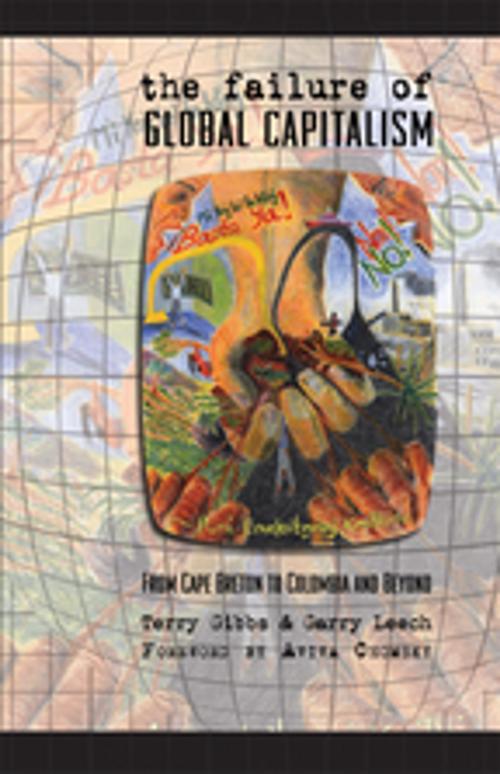The Failure of Global Capitalism
From Cape Breton to Colombia andBeyond
Business & Finance, Career Planning & Job Hunting, Labor, Economics, Economic History, Nonfiction, Social & Cultural Studies, Social Science| Author: | Terry Gibbs, PhD, Garry Leech, MA | ISBN: | 9781772060812 |
| Publisher: | Cape Breton University Press | Publication: | March 1, 2017 |
| Imprint: | Cape Breton University Press | Language: | English |
| Author: | Terry Gibbs, PhD, Garry Leech, MA |
| ISBN: | 9781772060812 |
| Publisher: | Cape Breton University Press |
| Publication: | March 1, 2017 |
| Imprint: | Cape Breton University Press |
| Language: | English |
What do Cape Breton and Colombia have in common? Coal, for one thing. Coal mining was the backbone of Cape Breton’s industrial economy for more than one hundred years, but the last mine was closed in 2001 when the province’s utility company took advantage of neoliberal globalization by importing coal—from Colombia. Colombia and Cape Breton represent the loss of well-paid, unionized industrial jobs as a result of neoliberal globalization—the economic hegemony that allows multinational corporations in the global North, primarily North America and Europe, to exploit the natural resources and cheap labour of the global South: Latin America, Africa and Asia. But the commonalities between Cape Breton and Colombia do not end with coal, there are numerous connections directly related to the capitalist system: militant labour struggles, repression, economic insecurity, population displacement, social inequality and environmental devastation. The Failure of Global Capitalism uses the examples of Cape Breton and Colombia to illustrate the harsh realities suffered by people throughout the global North and the global South under neoliberal globalization, particularly with regard to socio-economic and environmental issues. Ultimately, it exposes the failure of industrial capitalism, and looks toward more sustainable and egalitarian alternatives.
What do Cape Breton and Colombia have in common? Coal, for one thing. Coal mining was the backbone of Cape Breton’s industrial economy for more than one hundred years, but the last mine was closed in 2001 when the province’s utility company took advantage of neoliberal globalization by importing coal—from Colombia. Colombia and Cape Breton represent the loss of well-paid, unionized industrial jobs as a result of neoliberal globalization—the economic hegemony that allows multinational corporations in the global North, primarily North America and Europe, to exploit the natural resources and cheap labour of the global South: Latin America, Africa and Asia. But the commonalities between Cape Breton and Colombia do not end with coal, there are numerous connections directly related to the capitalist system: militant labour struggles, repression, economic insecurity, population displacement, social inequality and environmental devastation. The Failure of Global Capitalism uses the examples of Cape Breton and Colombia to illustrate the harsh realities suffered by people throughout the global North and the global South under neoliberal globalization, particularly with regard to socio-economic and environmental issues. Ultimately, it exposes the failure of industrial capitalism, and looks toward more sustainable and egalitarian alternatives.















